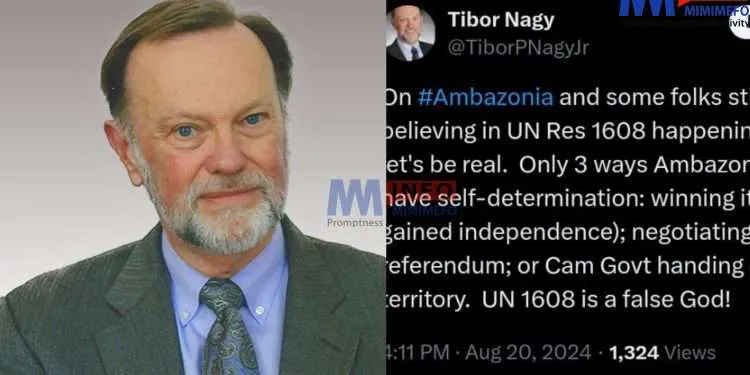Tibor Nagy, a former U.S. Undersecretary of State for Africa during the Trump administration, has urged separatists advocating for an independent state in Cameroon’s Anglophone regions to abandon hope in UN Resolution 1608 as a viable route to independence.
Resolution 1608, adopted by the UN General Assembly in 1961, followed a plebiscite in which British Southern Cameroons—now the North West and South West regions—voted to join the predominantly French-speaking Republic of Cameroun. Historical records indicate that the resolution “called for dialogue between the newly established Francophone Cameroun authorities, the British government, and Southern Cameroons leaders to negotiate a possible union between Southern Cameroons and Francophone Cameroun.”
Activists have long contended that the resolution was never properly enforced, rendering the union invalid.
“On Ambazonia and some folks still believe in UN Resolution 1608. Sorry, let’s be real,” Tibor Nagy stated on X, formerly known as Twitter, adding emphatically, “Resolution 1608 is false.”
Cameroonian Anglophone activists have repeatedly invoked the resolution in unsuccessful attempts to garner diplomatic and international support for their cause.
Dismissing the resolution as ineffective, the U.S. diplomat outlined three potential paths to achieving independence for Ambazonia: “Only three ways can Ambazonia have self-determination: winning it, negotiating a real referendum, or the Cameroon government handing over the territory,” he asserted.
The Anglophone regions of Cameroon have been embroiled in a separatist conflict for nearly eight years, with armed militants fighting to establish a state they call Ambazonia. Despite their efforts, the independence movement has made little progress, and a resolution remains elusive.



